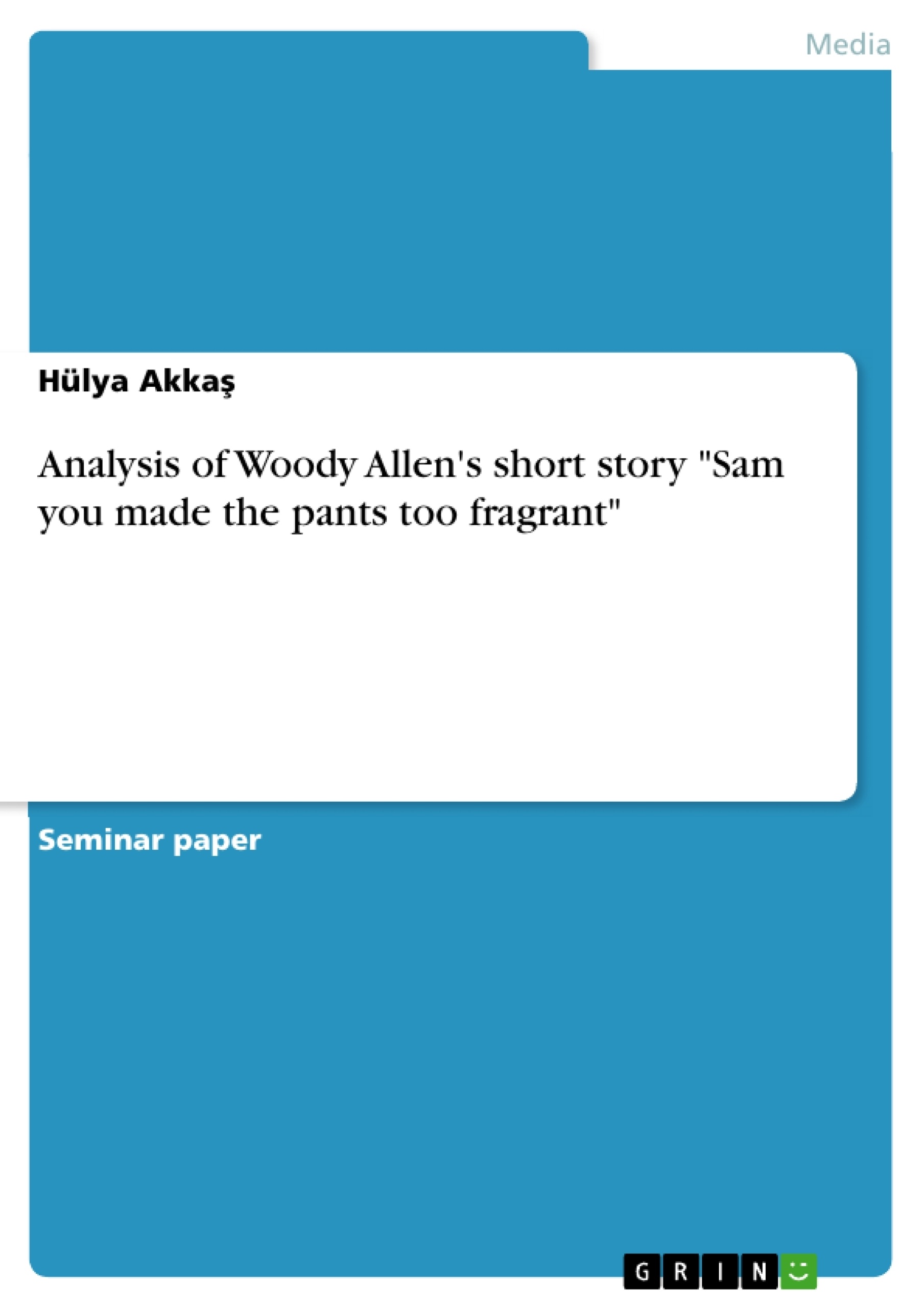Woody Allen, born Allen Stewart Konigsberg , is a Jewish artist, who is mostly known as filmmaker – but he carries several faces and puts his work into several fields. Although his movies often seem to deal with the same topics, Allen never concentrates on only one genre, as we worked out during our seminar and the expert sessions. Besides his widely spread image of the intellectual and humorous filmmaker, he put his thoughts into prose and stand-up comedy, too; he wrote articles for magazines like New York Times, Playboy or The New Republic and of course he is known through his roles in his own films. By acting out his own roles he has written, Woody Allen as the private person and the public known Woody Allen, somehow melted together; so, the viewer can find more personal elements in Allen`s movies, as he or she may expect. Or better said, he by some means performed himself through the stories of his films.
Besides the fact that Allen mostly acted out the role of the protagonist in his movies and barring that the topics of the movies seem to be repetitive, there are other typical elements that continuously appear in his movies, what in this paper – as it already have been in our expert session – will be depicted as “allenesque elements”. These are for instance the neurotic characters, the Jewishness (that apparently refers to his private persona), the psycho-analysis, the fusion of reality and fiction, unhappy relationships, love-affairs and the element of the anxious behavior, towards special issues, of some of his characters are just a number of the main subjects that are typical of Woody Allen stories. But Allen`s audience is not only “confronted” with these topics in his movies; as already mentioned, he also developed his ideas in prose and short stories.
With his book “Mere Anarchy”, in 2007 Woody Allen brought out his fourth collection of short stories and the first since 27 years. During this time he was mostly occupied with his movies; nearly every year, a new Allen movie was released. His new short story collection “Mere Anarchy” contains 18 pieces of which ten have been published in the New Yorker. Furthermore the reader can encounter the well known and already mentioned “allenesque” topics that in this case are for instance the doubt or self-doubts, the fact of loving women he cannot reach and the preference for progressive topics that were part of some of his movies, too. [...]
Inhaltsverzeichnis (Table of Contents)
- Introduction
- “Sam, you made the pants too fragrant”
- The story
- A summary of the plot
- A possible background of the story
- Analyzing the story
- The story
- Conclusion: Woody Allen and progress in life
Zielsetzung und Themenschwerpunkte (Objectives and Key Themes)
This paper examines Woody Allen's short story "Sam, You Made The Pants Too Fragrant" from his 2007 collection "Mere Anarchy." It explores the story's themes of progress, technology, and the pitfalls of modernity, analyzing the characters, narrative structure, and Allen's satirical approach. The paper will also discuss how this story relates to Allen's broader work, particularly his films and his recurring interest in neurotic characters and the complexities of human relationships.
- The pitfalls of progress and technological advancements
- The clash between traditional values and modern innovations
- Humorous and satirical commentary on contemporary society
- The portrayal of neurotic characters and their anxieties
- Woody Allen's unique literary style and recurring themes in his work
Zusammenfassung der Kapitel (Chapter Summaries)
- Introduction: This section introduces Woody Allen as a multi-faceted artist who explores themes of modernity and its complexities through various mediums, including film, prose, and stand-up comedy. It highlights Allen's signature "allenesque elements," such as neurotic characters, Jewishness, psychoanalysis, and the blend of reality and fiction, which are present in both his movies and short stories.
- “Sam, you made the pants too fragrant” – The Story: This section provides a summary of the short story, "Sam, You Made The Pants Too Fragrant," focusing on the plot, characters, and central themes. It introduces the protagonist, Benno Duckworth, a man who encounters his friend Reg Millipede wearing technologically advanced clothing, particularly a suit with a built-in hydration system. The story examines the absurdities and potential dangers of rapid technological advancements.
Schlüsselwörter (Keywords)
The core topics and keywords explored in this preview include Woody Allen, short stories, "Mere Anarchy," "Sam, You Made The Pants Too Fragrant," progress, technology, satire, modernity, neurotic characters, human relationships, and the blend of reality and fiction. The preview also touches upon Allen's signature "allenesque elements" and his recurring themes in his diverse creative output.
Frequently Asked Questions
What are "allenesque elements" in Woody Allen's work?
These are recurring themes like neurotic characters, Jewishness, psychoanalysis, unhappy relationships, and the fusion of reality and fiction.
What is the plot of "Sam, You Made The Pants Too Fragrant"?
The story follows Benno Duckworth, who encounters a friend wearing a technologically advanced suit with an absurd built-in hydration system, satirizing modern progress.
Which book collection contains this short story?
The story is part of the 2007 collection "Mere Anarchy," which was Allen's first short story book in 27 years.
What is the main satirical target of the story?
Woody Allen satirizes the pitfalls of technological progress and the unnecessary complexities of modern innovations.
How does the story relate to Woody Allen's film career?
Like his movies, the prose reflects his intellectual humor and his tendency to perform his own anxieties through his characters.
- Citar trabajo
- B.A. Hülya Akkaş (Autor), 2008, Analysis of Woody Allen's short story "Sam you made the pants too fragrant", Múnich, GRIN Verlag, https://www.grin.com/document/145460



